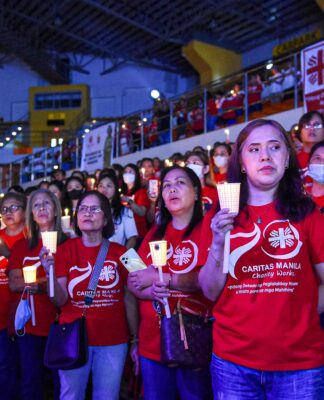THE VATICAN has reportedly offered to reintegrate the traditionalist Society of St. Pius X (SSPX) into the Church, as long as its leaders sign a “doctrinal preamble.”
In a report by the Catholic News Service, Pope Benedict XVI said he wanted to repair the rift with the SPPX and give the latter “full reconciliation with the Church.”
The doctrinal preamble supposedly asks the SSPX to adhere to Catholic doctrine and the teachings of the Church following the Second Vatican Council.
The SSPX, founded by French Archbishop Marcel Lefebvre in 1970, rejects Vatican 2’s reforms, particularly the use of the vernacular in the liturgy.
In 1988, SSPX was deemed in schism, stripped of its canonical status and banned from carrying out ministerial duties. The SSPX went against the orders of the late Pope John Paul II after it consecrated four bishops without the Pope’s approval. The four bishops were excommunicated.
As a gesture of reconciliation, Pope Benedict XVI lifted the penalties in 2009.
SSPX is known for offering only the Traditional Latin Mass despite the directive of the Second Vatican Council to reform the liturgy.
Vatican Spokesman Fr. Federico Lombardi, S.J. said in the same report that “although Pope Benedict XVI has lifted the excommunication of the society’s four bishops in 2009, the members of the society have no official standing in the Church until they had reconciled fully with the Vatican.”
The excommunication of the four bishops was lifted by Pope Benedict XVI upon the request of Bishop Bernard Fellay, superior general of SSPX.
In his letter to the Vatican’s Ecclesia Dei Commission, Fellay affirmed SSPX’s desire to remain Catholics. The commission is in-charge of talks with the SSPX.
The latest document given by Vatican to Fellay supposedly asks the society to abide by “some doctrinal principles and criteria for the interpretation of Catholic doctrine” and its teachings.
The document opens “legitimate discussion” between SSPX and the Vatican on the “individual expressions or formulations present in the documents of the Second Vatican Council and the successive magisterium.”
The Holy See said there was a need for a distinction between the disciplinary level and the doctrinal level, as the former deals with individuals, while the latter involves ministry and institution.
“In order to make this clear once again: until the doctrinal questions are clarified, the society has no canonical status in the Church, and its ministers—even though they have been freed of the ecclesiastical penalty—do not legitimately exercise any ministry in the Church,” the Pope said.
Fellay had said SSPX held talks with the Holy See to discuss supposed contradictions in the Church and practices following Vatican II, adding that dialogue was not to compromise anything, but to ask a “question of faith.”
The Vatican has not given SSPX a deadline, although it wants the society to “move foreword with reconciliation.”
Fr. Thomas Onoda of the SSPX-run Our Lady of Victories Church in New Manila, Quezon City declined to comment, saying “only the superior general of SSPX in Switzerland can comment about the issue.”















